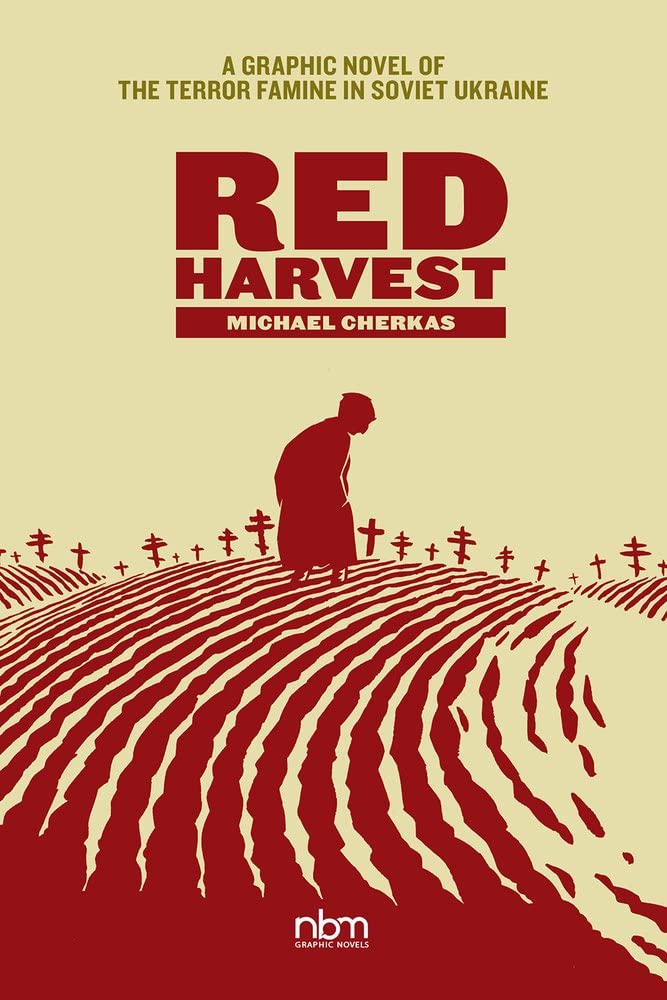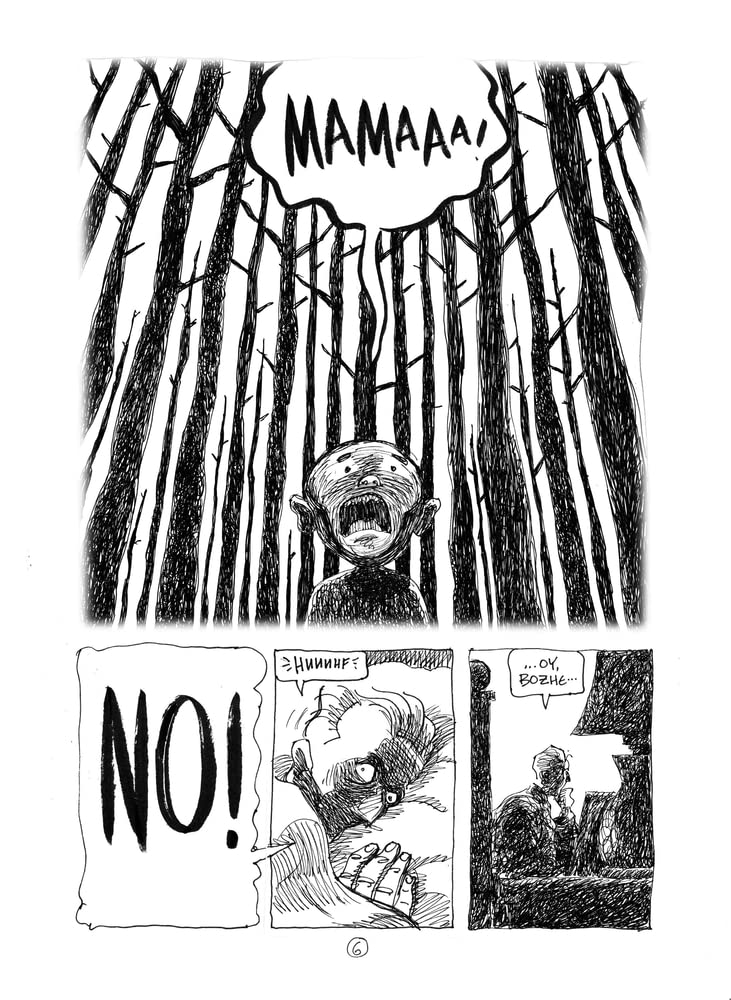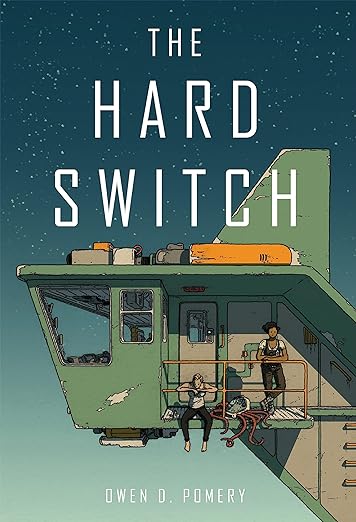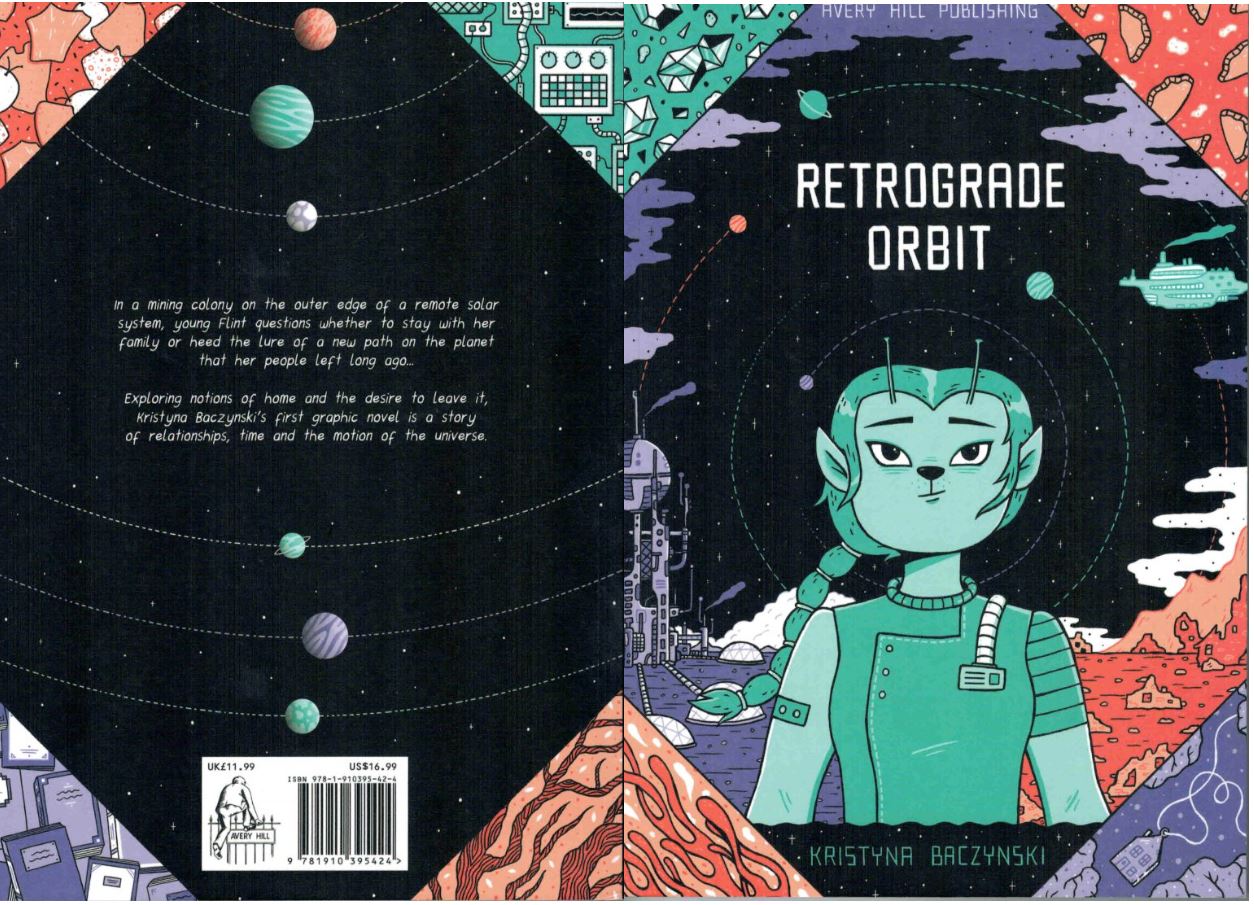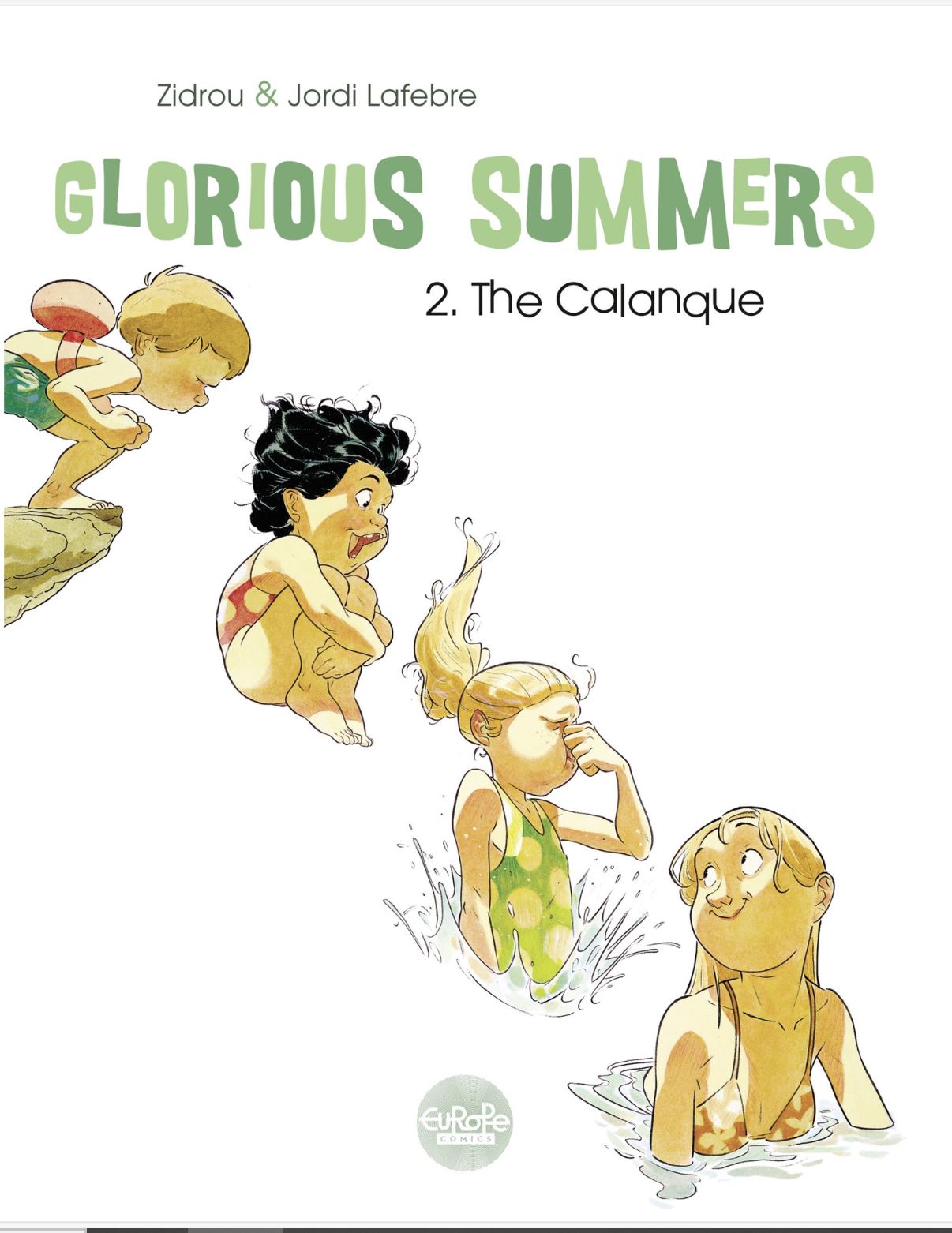
By Zidrou & Jordi Lafebre, with additional colour by Mado Peña, translated by Lara Vergnaud (Europe Comics)
No ISBN: Digital edition only
It’s close (OMG! LESS THAN A WEEK!) to the most stressful and commercialised event of the singleton calendar for unattached people who wish they weren’t, so let’s look at what all that amorous manoeuvring and romantic strategizing is supposed to lead to as perfectly depicted in a sublime and delightful family feast of “Happy Ever Afters”…
Until comparatively recently, comics in the English-speaking world mostly countenanced comedic or numerous adventure sub-genres (crime, superhero, horror, sci fi), with only a small but vital niche of “mundane world” ventures, usually depicted via graphic biographies and autobiographies like They Called Us Enemy, Breakwater, Love on the Isle of Dogs, Wage Slaves or Sour Pickles offering a different feel and flavour. Even historical sagas were treated as extraordinary moments with larger-than-life characters whenever possible.
What we have never had – and still largely don’t – is a comics equivalent to general fiction, drama and melodrama. That’s not so in Japan, South Korea or Europe, where a literal “anything goes” attitude has always accommodated and nurtured human-scaled, slice-of-life tales depicting ordinary people in as many quiet as extraordinary moments. Surely it can’t be that hard to tell engaging stories in pedestrian, recognisably ordinary settings? Medical traumas, love stories, school tales and family tragedies about common folk seem to play well on various-sized screens around the world, so why not in English language comics? The closest we seem to get are comedies like John Allison’s superb Giant Days (which I really must review soon)…
People being people is more than enough for Europeans. There apparently is an insatiable appetite for everyday events aimed at properly “mature readers”, joyfully sans vampires, aliens or men in tights. These even have sub-genres of their own. For example, there’s a wealth of superb material just about going on holiday. So, since our own Government-in-Absentia have ensured that it’s now all-but-impossible for any UK-based citizens to pop across and have une petite vacances in Europe, let’s stare & glare covetously at them having a good time. After all, over there holidays are an inalienable right, and they have some simply fabulous tales about a simple break. This one is probably amongst the best you’ll ever see…
An absolute exemplar of fantasy vacations made real, Glorious Summers: Southbound! (1973) was a nostalgia-drenched confection by Zidrou and regular collaborator Jordi Lafebre: a sublime example of idyllic group memory made into graphic sorcery in an everyday account utterly unafraid to temper humorous sweetness and light with real-world tragedy and suspense.
Perhaps some context is in order. Summer holidays – “Midi” – are a big deal in France and Belgium. The French divide into two tribes over the annual rest period, which generally lasts an entire month. Juilletistes only vacation in July, wielding dogmatic facts like rapiers to prove why it’s the only way to take a break. They are eternally opposed, heart, soul, and suntan lotion, by majority faction the Aoûtiens, who recharge their batteries in August whilst fully reciprocating the suspicion, disdain and baffled scorn of the early-leavers. Many European sociologists claim the greatest social division today is not race, religion, gender, political affiliation or whether to open boiled eggs from the top or the bottom, but when summer holidays begin and end…
Les Beaux Étés 1: Cap au Sud! was first in a string of family visits that began in 2015 courtesy of scripter Benoît “Zidrou” Drousie and Spanish illustrator Jordi Lafebre. Drousie is Belgian, Brussels-born in 1962 and was a school teacher prior to quitting marking books in 1990 to begin making them. His main successes include school dunce series L’Elève Ducobu, Petit Dagobert, Scott Zombi, La Ribambelle, Le Montreur d’histoires, the revival of Ric Hochet, African Trilogy, Léonardo, Shi and many more. His most celebrated and beloved stories are this memorable sequence and 2010’s Lydie, both illustrated by Lafebre.
That gifted, empathically sensitive illustrator and art teacher was born in Barcelona in 1979 and has created comics professionally since 2001, first for magazines like Mister K, where he limned Toni Font’s El Mundo de Judy. He found regular work at Le Journal de Spirou, creating the romance Always Never and collaborated with Zidrou on La vieille dame qui n’avait jamais joué au tennis et autres nouvelles qui font du bien, Lydie, and La Mondaine.
A combination of feel-good fable and powerful comedy drama, Glorious Summers depicts memories of an aging couple recalling their grandest family moments, beginning with a momentous vacation in 1973 where their four kids nearly lost their parents….
Here however, second volume The Calanque focuses on August 1969 as pregnant Maddie Faldérault (soon to deliver precociously hyperactive Paulette AKA Peaches) tries to amuse her three impatient kids whilst hubby Pierre frantically puts finishing touches to his latest comic strip. It’s a regular ritual before his month off, but this time less annoying as it’s also his first work as a named creator rather than an anonymous ghost artist for others. Apparently the world is finally ready for a four-armed cowboy gunfighter…
Their kids are immune to bedtimes and indulge in time-honoured holiday rituals like shouting, fighting and singing odd songs, before Pierre downs his brushes. Now the annual Faldérault escape from gloomy Brussels for a month in sun-drenched France can start.
Only… on the way they need to see his dad. Pépé Buelo moved to Brussels when General Franco took over Spain. He made a good life as bricklayer and husband, but now he’s on his own and a little lonely…
Eventually, the family set off with introspective toddler Louis reading, drawing and constantly sharing his far from limited knowledge of where babies come from, even as self-conscious oldest girl Jolly-Julie anxiously ponders life without bathrooms and in-betweener Nicole tells everyone they meet that mummy is going to be a mummy again. As they motor south in the dark – they left really, really late – they play their annual game of deciding where they’re going by solving riddles because planned destinations and pre-booked rooms are for wimps…
True free spirits, they pick up a hippie hitchhiker and scare him witless with their laid back attitudes – especially teasing Jolly-Julie’s reticence to use nature as a restroom. When he drops out they resume southern roaming and finally decide to camp in a shady wood for the night. In the morning the family Faldérault realise their error as elderly French couple Rufus and Ramona discover they have Belgians in the back garden…
After a few lovely days as guests who can’t politely escape, Pierre and Maddie learn that Rufus knows the perfect spot for travellers to enjoy their break, directing them to a hidden cove on the sea coast. It’s beautiful: an idyllic cliff-screened rustic paradise with a ramshackle fishing hut just ready to be temporarily occupied. Rufus even provides a guide in the form of his exuberant older brother – aging fisherman Marius.
What follows is timeless weeks of wonder and unforgettable explorations on endlessly sunny days, with local villagers taking the wanderers to heart and welcoming them to a taste of rustic heaven. Even the Americans landing on the moon or the Tour de France victory of Belgian Eddie Merckx can’t compare…
Ultimately the real world calls them back and the holidaymakers pack up for home. Awaiting them is bad news for Pierre, a new job for Maddie and a rainy grey hometown. One clear sign of normality resuming comes as they find a dog abandoned by the roadside, but brilliantly and boldly they turn that traumatic event into a lasting positive…
This tale is another beautifully rendered and realised basket of memories stitched seamlessly together. It’s funny, sweet and charming whilst delivering painful blows you never see coming. There aren’t any spectacular events and shocking crises and that’s the whole point…
If you’re British – and old enough – this series (six translated albums thus far, plus a French omnibus edition) will echo revered family sitcoms like Bless This House or Butterflies and generational ads starring the “Oxo Family”. (If that description doesn’t fit you, I pity your browsing history if you look up any of that…). The rest of you in need of an opening (but unfair) comparator could break out the Calvin and Hobbes collections and re-examine the bits with his embattled parents when the kid’s out of the picture…
Lyrical, laconic, engagingly demure, and debilitatingly nostalgic, this holiday romance is sheer visual perfection wrapped in sharp dialogue and a superbly anarchic sense of mischief. Vacations are built of moments and might-have-beens, packaged here in compelling clips making the mundane marvellous.
© 2018 -DARGAUD BENELUX (Dargaud-Lombard s.a.) – ZIDROU & LEFEBRE, LLC. All rights reserved.


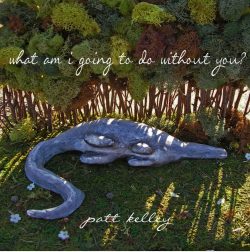
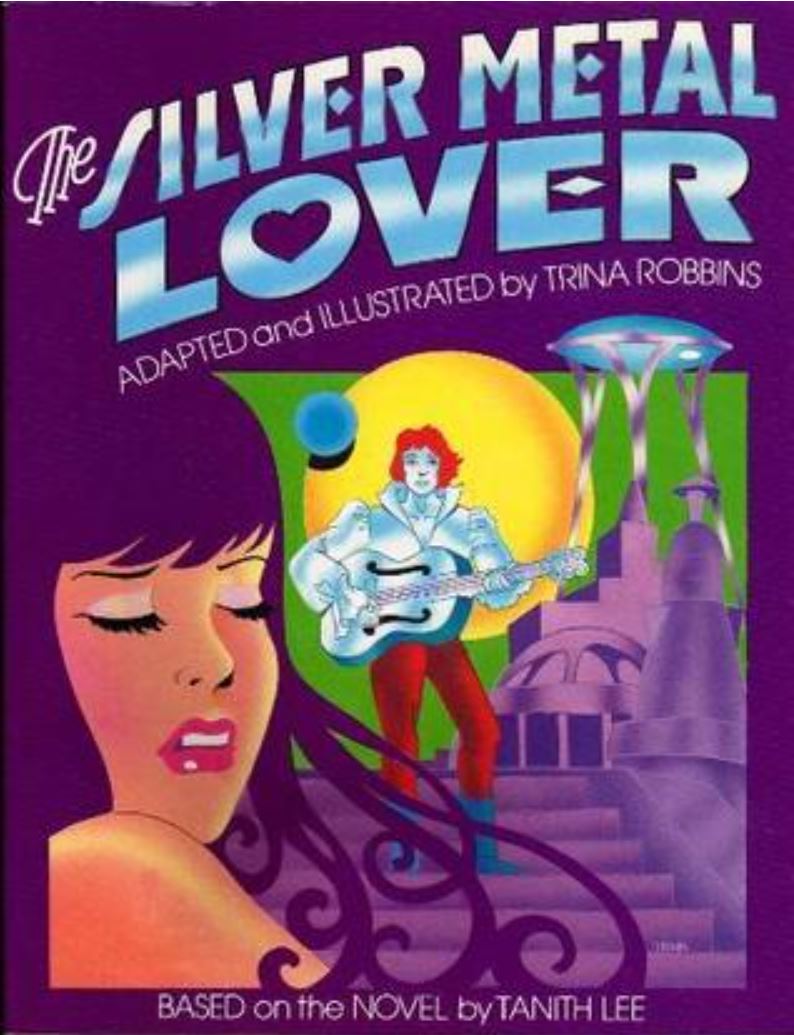
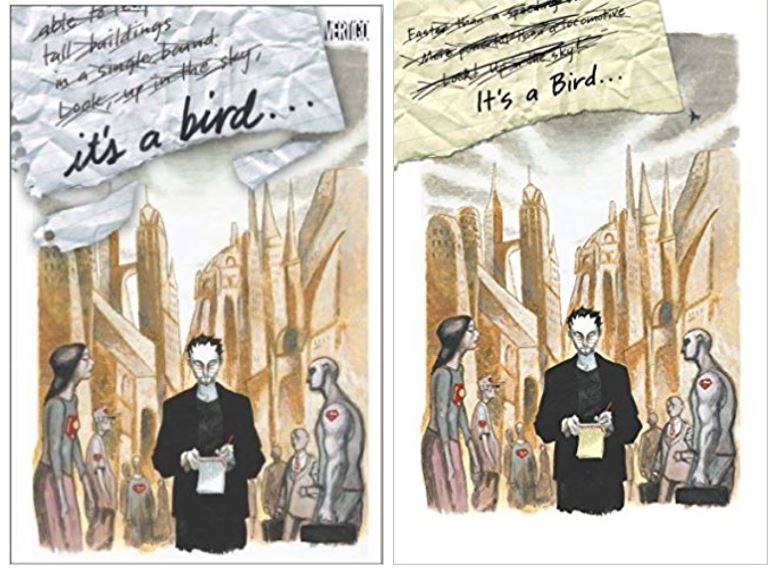
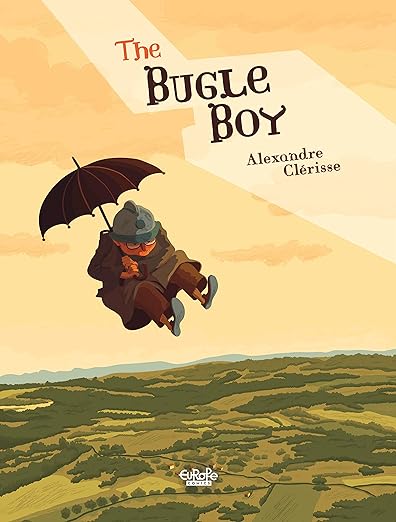
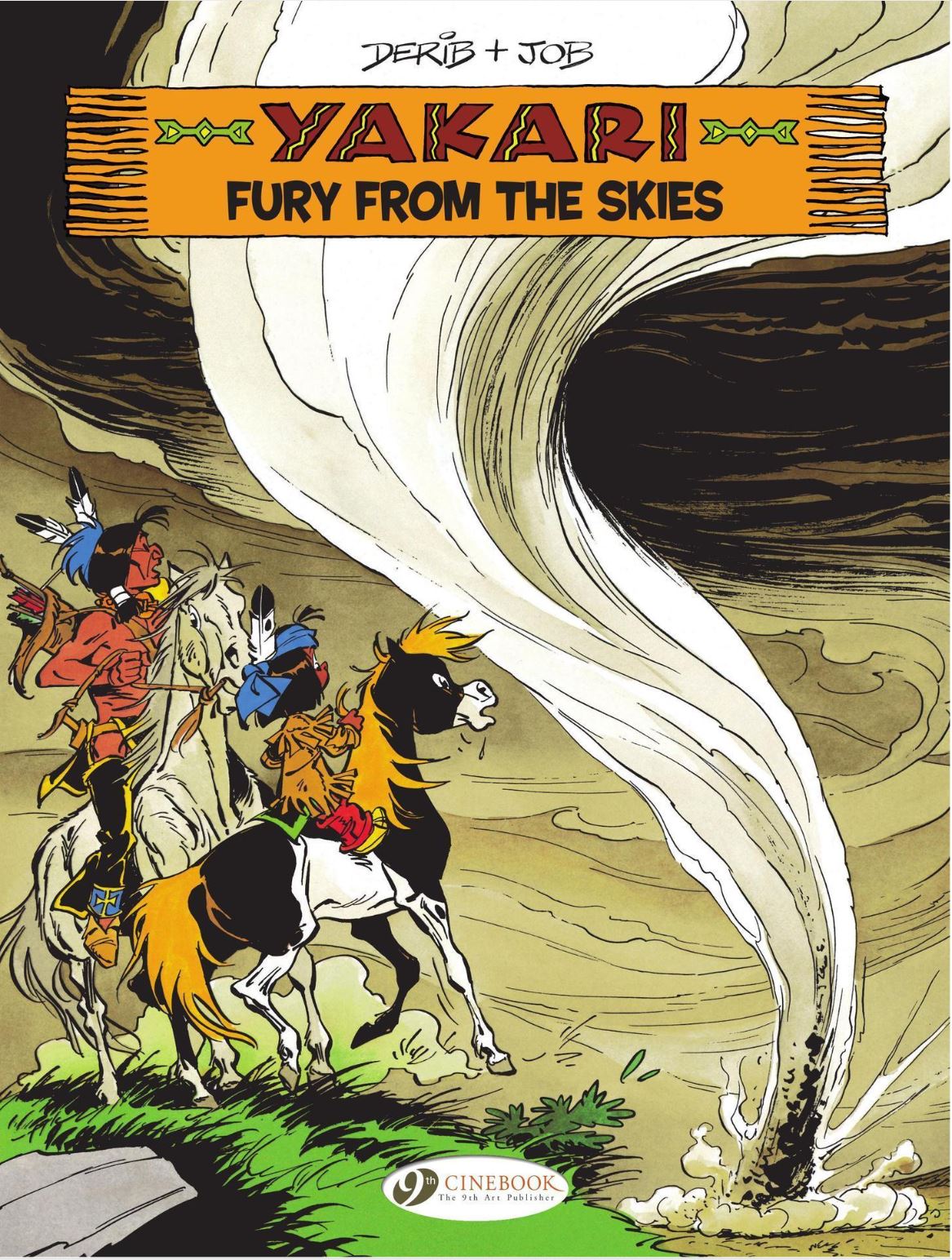
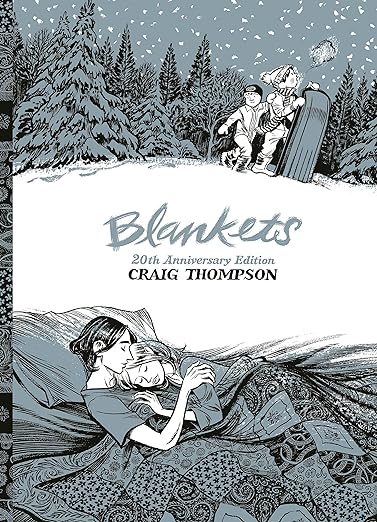
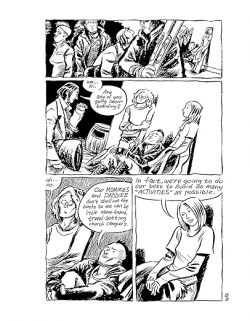 For such a weighty tome, Blankets is a remarkably quick and easy read, with Thompson’s imaginative and ingenious marriage of text and images carrying one along in the way only comics can. One of the most powerful and lovely tales of first love and faith lost, this book has lost none of its charm and seductive power over the decades. If you aren’t slavishly addicted to skimpily-clad incel-fodder or punch-in-the-face comics and have held on to the slightest shreds of your innate humanity, this is that rarest of beasts – a perfect story in pictures.
For such a weighty tome, Blankets is a remarkably quick and easy read, with Thompson’s imaginative and ingenious marriage of text and images carrying one along in the way only comics can. One of the most powerful and lovely tales of first love and faith lost, this book has lost none of its charm and seductive power over the decades. If you aren’t slavishly addicted to skimpily-clad incel-fodder or punch-in-the-face comics and have held on to the slightest shreds of your innate humanity, this is that rarest of beasts – a perfect story in pictures.